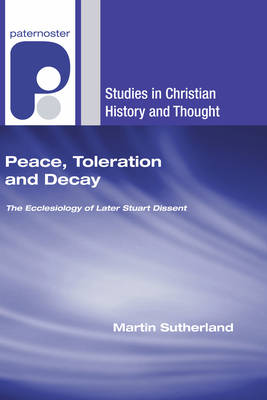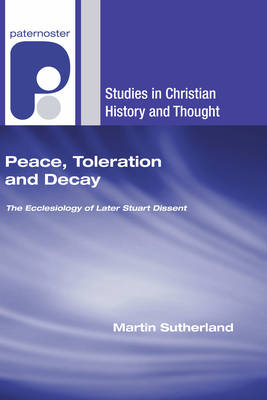
- Retrait gratuit dans votre magasin Club
- 7.000.000 titres dans notre catalogue
- Payer en toute sécurité
- Toujours un magasin près de chez vous
- Retrait gratuit dans votre magasin Club
- 7.000.0000 titres dans notre catalogue
- Payer en toute sécurité
- Toujours un magasin près de chez vous
Description
Traditional approaches to early Nonconformity have divided its history at the Toleration Act of 1689. The intellectual history of the movement has largely focused on the ideas of Richard Baxter and John Locke. These conventions prevent a full understanding of the disunity and decline of the movement in the early eighteenth century. Continuities across the period and the gradual emergence of themes which would feed into Evangelicalism have been obscured. The rich theological dynamics of Dissent cannot be appreciated without detailed reference to the thought of other contemporary leaders. Among the most important was John Howe (1630-1705). Howe's career stretched from Cromwell to Queen Anne. His irenic ecclesiology shaped the response to toleration and influenced key leaders in the decades following his death. Crucial shifts in Nonconformist thinking may be traced in his writings and those of his successors, such as Calamy, Watts, and Doddridge. As a result, the significance of the division at Salters' Hall in 1719 becomes clearer. This study reexamines a neglected strand of Nonconformist thought and proposes a new understanding of later Stuart Dissent. The distinct characteristics of the movement are freshly defined and Dissent is situated in historical continuity between Puritanism and early Evangelicalism. The monograph thus provides a scholarly reinterpretation of an important group in a crucial period of English history. The themes that emerge inform the wider study of English ecclesiology and political theory under the Tudors and Stuarts. 'Toleration in 1689 failed to bring growth to English Dissent. Martin Sutherland's thorough study of John Howe explains that his spiritual brand of ecclesiology was in part responsible for the subsequent decay of the Dissenting interest.' - David Bebbington, University of Stirling, UK 'This highly readable study of a largely neglected Dissenter greatly advances the rehabilitation of the theological foundations of late-seventeenth-century religious debate, so crucial to political stability. It cogently and freshly elucidates Church-Dissent relations and the decline of Dissent, in that century and beyond.' - Marie Peters, University of Canterbury, New Zealand 'Martin Sutherland's work will be essential reading for historians of Stuart England. It provides remarkable insights into the history and politics of Nonconformity in the later seventeenth century, and does so by the simple means of taking seriously Nonconformist theology. It is a striking reminder that all historians of the period need to do the same.' - Glenn Burgess, University of Hull, UK Martin Sutherland was born in Christchurch, New Zealand. He is Director of the Carey Centre for Theological Studies in Auckland, New Zealand, and editor of the New Zealand Journal of Baptist Research. He has published articles in historical theology and church history. Martin is married to Yvonne and they have three children.
Spécifications
Parties prenantes
- Auteur(s) :
- Editeur:
Contenu
- Nombre de pages :
- 246
- Langue:
- Anglais
- Collection :
Caractéristiques
- EAN:
- 9781597527910
- Date de parution :
- 01-01-07
- Format:
- Livre broché
- Format numérique:
- Trade paperback (VS)
- Dimensions :
- 156 mm x 228 mm
- Poids :
- 349 g

Les avis
Nous publions uniquement les avis qui respectent les conditions requises. Consultez nos conditions pour les avis.






